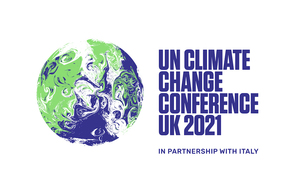Liz Truss opening statement at International Trade Committee
Good to be here to give an update on our trade negotiations as we continue our journey as an independent trading nation.
This government is determined to deliver tangible economic value for communities across the entire country through new and enhanced trading relationships. We will also make sure that our trade is values driven and presents the best of Britain to the world.
That is exactly what we’ve done in our deal with Japan, which, as the Committee will know, has been signed in the period since I last spoke to you.
The Japan deal is a watershed moment for Britain on digital, data and services and in some areas goes beyond CPTPP. For example, it puts forward important principles on net neutrality and anti-data localisation.
It helps advanced manufacturing including in parts of the country like the Midlands and north of England that will support livelihoods.
It puts in place better arrangements for business travel, the creative industries and financial services.
Food and drink sections that protect tariff advantages and go further in recognition and protection of iconic British products
Some people said we would not be able to achieve the same as the EU because we were smaller.
In fact, we have protected all the existing benefits and gone further.
We have continued the tariff reductions on over 99 percent of our food exports that are not under quota, currently worth around £130m, including cheddar cheese, beef, higher value pork which see tariffs reduce down to 0%, 9% and 0% respectively over time.
If we hadn’t done this Japanese consumers would be paying tariffs of 29.8% on cheddar, 38.5% on beef and 4.4% on pork on 1st January. Again, this protects livelihoods and communities.
For the 1%, or £1m worth of exports, that are subject to tariff rate quotas, for example stilton cheese and cake mixes, we have secured access to the EU quota which should have enough availability until 2024 – after which we have commitments for larger access under CPTPP.
It’s important to note that no importer will have to pay up front and we have agreed a simpler process with Japan for access to the quotas than under the EU agreement.
What’s more we’ve gone beyond EU on Rules of Origin, these changes will allow up to £88m of UK exports to receive preferential tariffs in Japan and so could increase the volume of trade in areas like textiles, confectionary and biscuits.
We’ve also helped British importers – get lower cost access to car parts and electronic goods, making our manufacturing more competitive and helping diversify away from riskier countries.
Today we publish four documents on Geographical Indicators, Rules of Origin, Agri-food and digital and data to give more detail to those who are interested.
We’ve achieved positive agreement on the environment and on women’s economic empowerment showing what we can achieve when we work with like-minded allies. I know many members of the committee share my deep commitment to these causes.
The overall benefits are estimated at £15bn additional trade but don’t believe this fully captures the opportunities of digital trade nor the impact of innovation. That’s why we’ve commissioned Professor Tony Venables of Oxford University to update our trade modelling for the modern age.
I also want to take a moment to thank, again, the patriotic team of outstanding civil servants who made this deal possible. Their hard work is historic and the benefits of their work will be felt across the country.
We are in negotiations with Canada, Australia and New Zealand which will deliver further gold standard provisions. And I congratulate the government of New Zealand on their recent election which I hope will help pave the way to a deal. This month we will kick off our latest round of talks with Australia.
We’re making good progress with US and round five of negotiations has now concluded, putting us in a an excellent position to continue talks once a final result of the election is known.
Ultimately, we want to secure access to the Trans Pacific Partnership. Together with the United States this would be unprecedented and deep access to over 40 per cent of global GDP worth £27tr.
Because, down to TPP, of common rules of origin, common standards on services and tech and a common rules-based approach – this would be more than the sum of its parts. It would mean freer trade for British businesses and more resilient supply chains backed by a strong trade agreement.
This, Chair, is the beginning of what independent life can look like. This is the UK helping set global rules with like-minded democracies.

